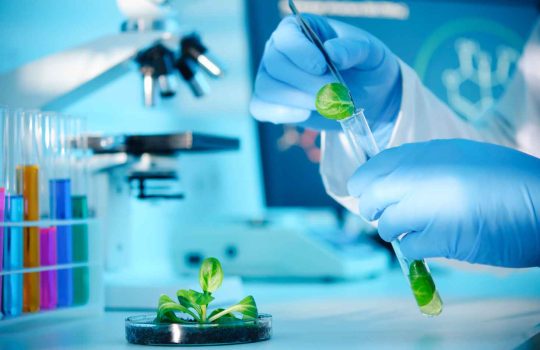
Why Are Research Services Fundamental to Medical Technology Innovation?
Research services play a vital role in medical technology innovation. At its core, these services serve as a bridge between initial scientific discovery and the practical application of these findings in the medical field. By offering specialized expertise in areas such as pharmacology, toxicology assessments, and biological testing, research services enable careful validation and development of potential medical solutions. This process is not only about demonstrating the efficacy and safety of new treatments, but also about ensuring that these innovations can be practically translated into real-world applications. Without the rigorous testing and validation provided by research services, many breakthrough therapies may never advance beyond the conceptual stage. Thus, research services are as much the backbone of medical technology innovation as the platform https://biotechfarm.co.il/ , ensuring that progress is both scientific and practical.
What Are the Main Areas of Focus in Medical Technology Research Services?
Research services within the medical technology sector concentrate on several crucial areas to drive innovation and enhance patient care. Firstly, the development of pharmaceuticals is a primary focus. This involves not only the creation of new drugs but also improving the delivery mechanisms for existing treatments to increase efficacy and reduce side effects. By exploring both intra-venous and topical/dermal applications, researchers can tailor therapies to the specific needs of patients, making treatments more personalized and effective.
Another significant area of focus is the advancement of medical devices. From orthopedic devices that aid in bone regeneration to innovative tools for ophthalmology treatments, research services work on inventing and refining technologies that can improve surgical outcomes, enhance diagnostics, and facilitate patient recovery. These advancements often incorporate cutting-edge technologies such as biodegradable polymers and nanotechnology, pushing the boundaries of what's possible in medical care.
Research services also dedicate considerable effort towards improving procedures for treating complex conditions such as blood, heart, or circulation malfunction. By utilizing state-of-the-art imaging tools and collaborating with skilled surgeons, research teams develop new surgical techniques and interventions that can lead to better outcomes for patients suffering from these life-threatening conditions.
Lastly, another critical focus is on setting models for disease treatment, including diabetes and metabolic diseases. Through validating biological assays and biomarkers, research services strive to understand these conditions better, leading to more effective and targeted treatments.
By addressing these key areas, medical technology research services are pivotal in shaping the future of healthcare, ensuring that innovations continue to emerge and evolve in response to the pressing needs of patients worldwide.
How Do Research Services Enhance the Development of Medical Devices?
Research services are instrumental in the development of medical devices, propelling innovations that transform patient care. The enhancement brought about by these services is multifaceted, addressing everything from conceptualization to the practical application of medical devices in clinical settings.
One of the primary ways research services bolster the development of medical devices is through rigorous preclinical testing. This phase is crucial for assessing the safety and efficacy of devices before they are used in human trials. By utilizing state-of-the-art facilities and employing advanced testing methodologies, research services can simulate a wide range of clinical scenarios. This ensures that medical devices are not only effective but also adaptable to various patient needs.
In addition to preclinical testing, research services contribute to the enhancement of medical devices through iterative design improvements. Feedback from these tests informs the optimization of device design, making them more user-friendly and increasing their therapeutic effectiveness. This iterative process is vital for refining devices to meet stringent regulatory standards and achieve market approval.
Moreover, research services facilitate the integration of emerging technologies into medical device development. By exploring the potential applications of technologies such as nanotechnology, biodegradable polymers, and advanced imaging techniques, research services can innovate devices that offer new treatment possibilities. These advancements can lead to less invasive procedures, quicker recovery times, and improved overall patient outcomes.
In essence, research services play a pivotal role in the enhancement of medical devices, ensuring that innovations not only meet the highest standards of care but also push the boundaries of what is possible in medical treatment and recovery.
In What Ways Do Research Services Impact Patient Outcomes and Healthcare Quality?
Research services have a profound impact on patient outcomes and the overall quality of healthcare. Their contributions are critical in making medical care more effective, personalized, and safer for patients. By focusing on the development and validation of new treatments and medical devices, research services directly influence the quality of care that patients receive.
One significant impact is the improvement in treatment efficacy. Through rigorous testing and validation processes, research services help bring to the market treatments and devices that are both effective and tailored to specific conditions. This means patients can receive more targeted therapies that are likely to result in better health outcomes. For example, the development of new pharmaceuticals and the improvement of drug delivery systems ensure that medications are not only potent but also minimize side effects, enhancing patient safety and comfort.
Furthermore, research services contribute to the advancement of diagnostic tools and procedures, enabling early detection and intervention for various diseases. Early diagnosis often equates to more effective treatment, significantly improving patient prognosis. Advanced imaging technologies and diagnostic devices developed through research can detect conditions that were previously difficult to diagnose, leading to early and more personalized care plans.
Lastly, research services drive the innovation of minimally invasive surgical techniques and devices, reducing patient recovery times and hospital stays. This not only improves patient experiences but also contributes to the overall efficiency and cost-effectiveness of healthcare systems.
In essence, research services are the backbone of medical innovation, playing an indispensable role in enhancing patient outcomes and elevating the standards of healthcare quality. Through their dedicated efforts, the future of healthcare continues to become more promising, with advancements that promise better, safer, and more personalized care for all.

